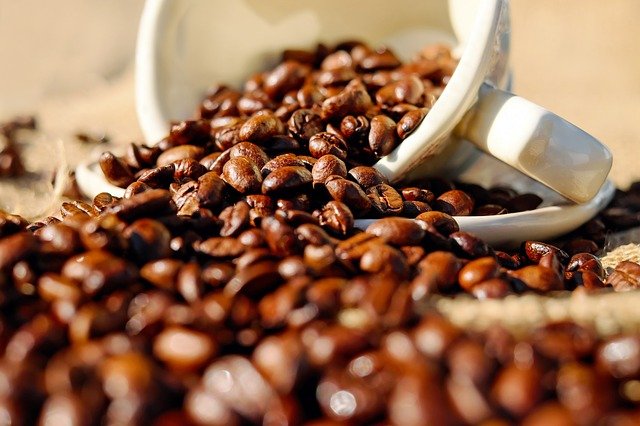Is it Possible to Freeze Coffee Beans?
You may be wondering whether you should freeze your speciality coffee beans or if it is a good idea. Then you aren’t alone in feeling this way!
- Those well-known assertions that contradict one other are nothing new.
- “Freezing speciality coffee beans will impair the quality of the beans,” says the expert.
- If you want to preserve your coffee beans fresher and more flavorful for a longer period of time, freeze them beforehand.
- “Because they will absorb moisture and the aromas of other items in the freezer, you should avoid freezing your coffee beans.”
- “Coffee beans should be frozen before grinding them because frozen beans generate a more consistent grind.”
What is a coffee enthusiast to do in such a circumstance?
The simple answer is that freezing your beans has its advantages, but there are actions you can take to ensure that the taste and quality of your beans are preserved to the greatest extent possible throughout the process.
 What Is A Large Coffee Percolator And How Do I Use It?
The Professionals’ Guide to Becoming a Barista
What Is A Large Coffee Percolator And How Do I Use It?
The Professionals’ Guide to Becoming a Barista
Is it Possible to Freeze Coffee Beans?
3 Reasons To Make Coffee With Bottled Spring Water Use Flavored Syrups in these 9 Different Ways Light Roast Coffee Brewing Guide Want BBQ All Winter Try These Winter Grilling IdeasWhat is the purpose of storing coffee in the freezer?
Several chemical changes occur in coffee during storage, all of which have an impact on the taste. While storing coffee, some of the volatile flavor molecules that may be present in fresh coffee may be lost, resulting in a weaker coffee fragrance than when it was first purchased.
Furthermore, it has been shown that fresh coffee is less bitter than stored coffee, regardless of the temperature at which it is kept. For one thing, some molecules in coffee, such as phenolic acids, which contribute to bitterness and astringency, may undergo reactions during storage that result in the formation of even more bitter compounds.
In order to get the best taste and quality, speciality coffee should be brewed within a few days following roasting, after the coffee has degassed and while it is still relatively fresh. However, in our hectic lifestyles, it is not always feasible to get freshly roasted coffee in tiny amounts that can be consumed rapidly on a daily basis.
If you have bought more coffee than you will be able to consume in a short period of time (noticeable taste changes may occur within two weeks after roasting), freezing your coffee is the next best choice for preserving it.
Due to the low moisture content of roasted coffee beans, there is little water available to produce ice, resulting in the coffee being cooled but not really frozen, and the structure of the coffee being intact.
Although freezing coffee may not completely preserve it, it does significantly lengthen its shelf life, which is the amount of time it can be stored before it becomes unfit for consumption. Freezing slows down the deterioration processes that reduce the quality and taste of food.
A 2018 research discovered that grinding the beans while they are still frozen results in a more consistent grind size, with particles that are mainly comparable in size rather than particles that are vary in size. This may be of interest to you. However, it has not yet been shown how a consistent grind size affects the taste of the coffee.
In the event that you want to freeze your coffee beans, there is an appropriate technique to go about it, as well as frequent blunders and traps to avoid.
How to store coffee beans in the freezer
Make use of a container that is airtight.
If you want to freeze your coffee in the bag it came in, don’t do it. The bag isn’t airtight, and roasted coffee is hygroscopic, which means it collects moisture from its surroundings.
In lieu of this, use airtight storage containers or bags, and you may even vacuum seal the container to prevent it from being infected with germs. Maintaining the frozen state of your coffee beans helps prevent moisture, oxygen, and scents from other freezer items from coming into contact with them and causing degradation or the development of undesirable flavors..
A Ziploc bag full of coffee beans is sitting on the coffee table.
A sealed freezer bag with the air squeezed out can work just as well as an airtight container if you don’t have access to one. The following is taken from the Bean Poet website:
Using airtight containers to store lasagna that has been lying in your freezer for six months is the best way to ensure that the lasagna stays fresh.
Avoid freezer burn by freezing in little quantities.
If you are freezing a large amount of coffee, it is conceivable that you will want a number of airtight containers.. Because of the constant opening and closing of a container, it will never be completely airtight.
Prior to serving, defrost the food.
Condensation (moisture) will form on the beans within the container as a consequence of the rapid change in temperature that happens when the container is opened quickly after it has been removed from the freezer.
When using frozen or thawed beans, it is recommended that you allow them to defrost for a few minutes before using them in your recipe. They will be ready for you when you wake up in the morning since they have been allowed to defrost over the night.
Take into account your desired roasting level (or levels).
Despite the fact that the effects of freezing coffee of different roast degrees are not well-documented in scientific literature, a 2018 study found that darker roast samples decayed more quickly at room temperature than light roast samples. This is consistent with previous studies.
As a result of the fact that darker roasts have been shown to have higher levels of instrumentally determined volatile compounds, which are responsible for the aroma and flavor of the coffee that you taste, this makes sense.
This is due to the fact that they are so little that they lose their fragrance much more quickly than other molecules that contribute to flavor. Following a lengthy period of freezing, the researchers noticed a smaller difference between light and dark roast samples.
Consequently, if you like darker roasts, keep in mind that you may want to try freezing your coffee since the aroma of darker roasts may dissipate more quickly than the perfume of lighter roasts when kept at room temperature, so consider freezing your coffee instead.
Coffee beans with a dark roast are kept on a rack in the refrigerator.
Even if they are maintained in the freezer for a lengthy amount of time, darkly roasted beans, such as these, will degrade considerably more swiftly than light roasts. The following is taken from the Bean Poet website:
Do coffee beans keep well in the freezer for a long time?
Even though frozen coffee may be used for an extended amount of time after its quality has deteriorated, its quality and flavor will begin to degrade after a few months, and it is thus advised that you consume your coffee within that time frame (or sooner).
Is it feasible to freeze coffee that has already been ground up?
It shouldn’t make a difference whether you freeze your beans whole or ground provided your storage container is totally airtight. While freezing whole beans rather than coffee grounds has certain benefits, freezing whole beans instead of coffee grounds has some disadvantages as well.
Grinders break up big chunks of food into little pieces, increasing the amount of surface area accessible for the release of countless small aromatic flavor molecules, which is beneficial for health.
In part as a consequence of the increased surface area, there is greater interaction between the grounds and environmental components such as light (including oxygen), moisture, and other odors associated with frozen food.
Whenever these components come into contact with one another, chemical reactions might occur, which can result in the development of disagreeable flavors.
It makes no difference whether you store whole beans or ground beans; by freezing your coffee rather than keeping it at room temperature, you will be delaying the onset of these degradation processes to a greater or lesser degree.
The following are merely suggestions on methods to improve the flavor of your frozen specialty coffee beverage.
In the course of making a meal, it is not always feasible to have a large number of airtight containers on hand or to freeze whole beans instead of ground beans. Even if you are unable to stick to all of these guidelines, you will be able to enjoy wonderful defrosted coffee in the comfort of your own home in no time (or rather, in a month or two).





